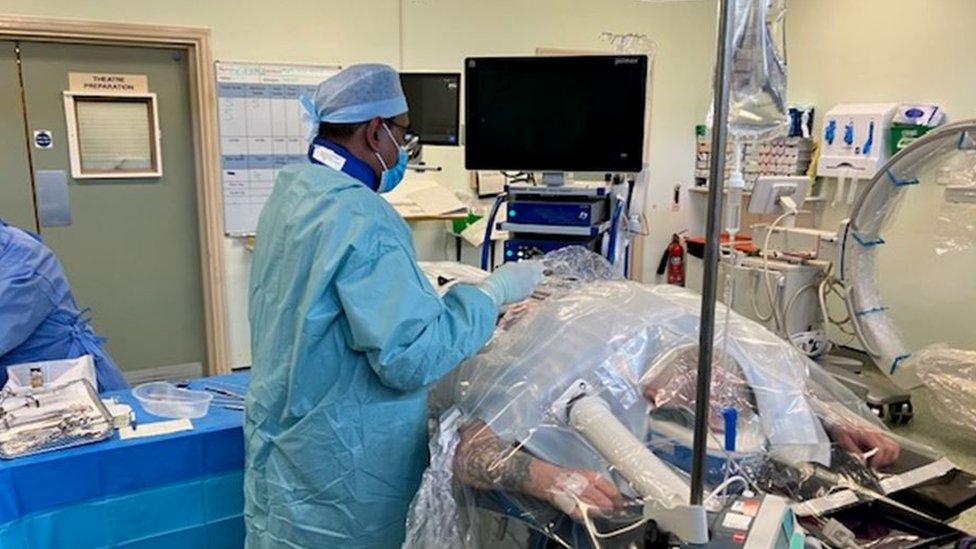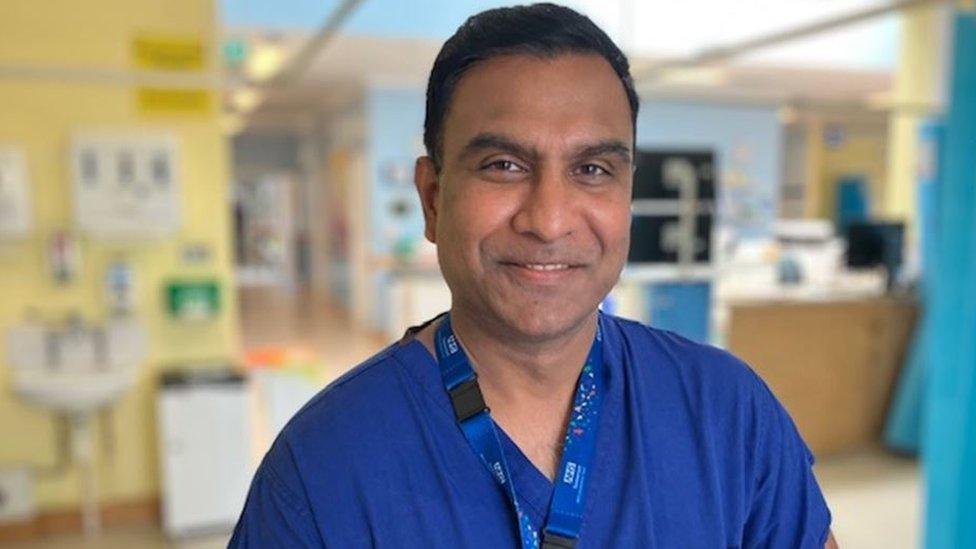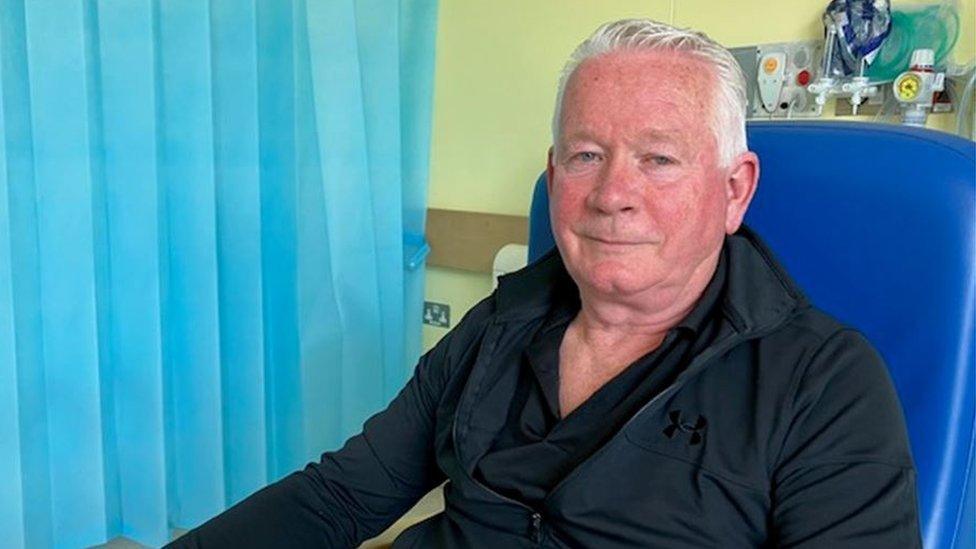Somerset: Pioneering spine surgery helping patients to recover
- Published

Surgeons using the technology insert a tiny camera into the spine, which reduces damage to muscle and bone
Pioneering spinal operations are allowing more patients to leave hospital on the same day as their surgery.
Somerset NHS Foundation Trust is the first NHS trust in the south-west of England to purchase an Endoscopic Spinal Surgical System.
Surgeons using the technology insert a tiny camera into the spine, which reduces damage to muscle and bone.
Patients should then need less physiotherapy when they leave hospital.
Spinal surgery involves working close to lots of important structures in the body, so surgeons need to be very careful during a procedure.

The kit costs £180,000 but there are potential savings to be made
There are traditionally a number of different risks involved, particularly as long incisions made into the patient's body frequently mean they need a long stay in hospital to recover.
And even after the patient returns home, they tend to experience back pain for a while.
Ashok Subramanian has been performing spinal procedures using this technique since 2013 through his NHS practice in Scotland.
Since he introduced the technique in Somerset, around 100 patients have benefited. There are only three other centres in England that provide the treatment - in London, Manchester and Birmingham.
Musgrove Park Hospital therefore treats patients across the whole of the south-west - a catchment area of one million people, including the island of Jersey.
Mr Subramanian said: "One of the key advantages of the technique is that we don't need to release any of the core spinal muscles, which reduces the chance of back pain for the patient.
'Much quicker'
He added: "Even a microscope technique would need up to a 2cm incision, but this camera is just 0.6cm thick, so requires a very small incision, reducing any inflammation in the patient's skin so their recovery can be much quicker with less post-operation pain."
The surgery can also be performed under local anaesthetic so the patient is awake throughout the procedure, and can even see it happening on a screen.
It can also be given to some patients who are not able to have a general anaesthetic due to lung conditions or other medical issues.
Scot Maclachlan, from Taunton, had the operation performed to shave a prolapsed disc on 28 April.

Scot Maclachlan was able to walk an hour after his operation
Before the procedure, Mr Maclachlan said: "I used to play squash a lot. I can't do that any more, in fact I can't do anything particularly physical.
"I can't do any heavy work so it's very restrictive in terms of day to day life. It's fine if I do nothing but that's not really an option so hopefully I will be able to get back to normal life."
Within an hour of the operation, the 64-year-old from Taunton said he got up and started walking.
Mr Subramanian has presented the technique to gain National Institute for Health and Care Excellence (NICE) guidance and accreditation for the procedure.
This means it can be used as a standard in NHS trusts.
Mr Subramanian added: "Now that we have purchased the kit to carry out the procedure we hope to be able to increase its availability so it can benefit more patients.

Follow BBC West on Facebook, external, Twitter , externaland Instagram, external. Send your story ideas to: bristol@bbc.co.uk